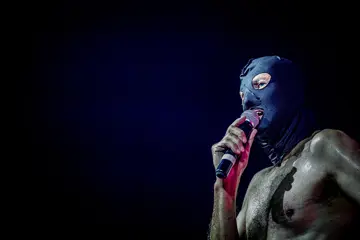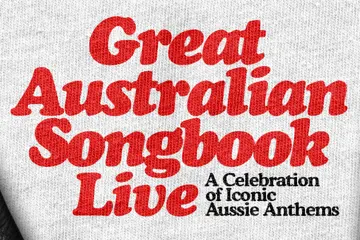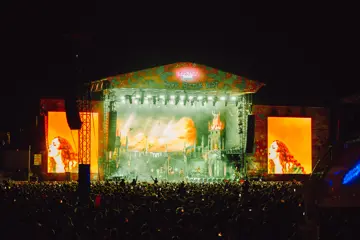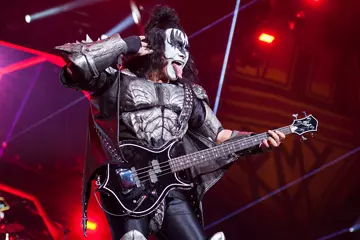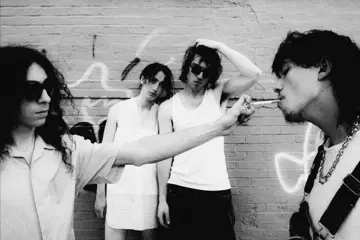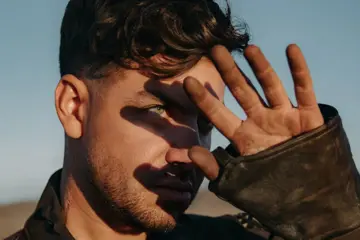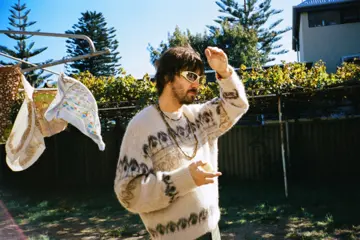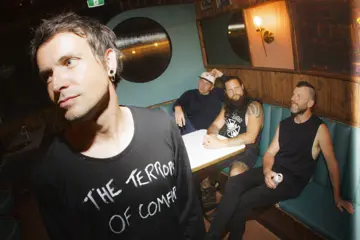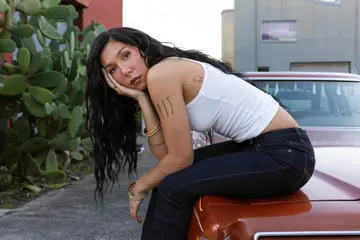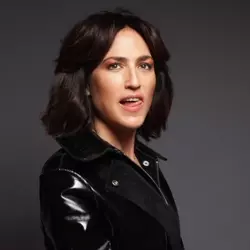 Joan As Police Woman
Joan As Police WomanWith 2011's The Deep Field, the melancholy of Joan Wasser's torch singing temperament dissipated somewhat in favour of a more life-affirming approach to songwriting, drawing from a richer musical palate. With The Classic, she's thrown in the influence of bygone soul, brass galore and even crossed doo-wop with beatboxing, and she's changed her entire approach to recording.
“I think it just continued going in the way that it had been going. I feel like it was a pretty easy move from The Deep Field,” says Wasser. “I think what is different is the way – I mean, yeah, it did take it further into more poppy, more – for lack of a better word – funky songs, but I think it also sounds different because of the way that we recorded it. We just recorded everything live and didn't tweak the sounds much after we recorded them. When the song form is over we always continue to play the chord progression because it feels good to play, and in the past I would have faded that down, thinking, 'Oh well no one wants to hear that,' and on this record I was like, 'Screw that! If it feels good I'm leaving it and I'll just develop those end sections.' I just let myself be more free with the form. I feel like I gave my listeners some credit that they would want to hear what happens after the song form is over and where it could be developed.
“We did spend more time on it. We actually didn't record it in a studio, which allowed us to spend a lot of time on it because there was no clock ticking,” she says of the album, co-produced with long-time collaborator and band member Tyler Wood. “We had so much more freedom to take our time, to develop the songs slowly.”
Wasser has impeccable taste in collaborators, having introduced fans to an array of intriguing male voices over the years including the exquisite baritone of Joseph Arthur and the magical gloom of Antony Hegarty. This time human beatbox Reggie Watts was called in.
Don't miss a beat with our FREE daily newsletter
“With the Reggie situation I was being more of a fan – I mean I still am an enormous fan – I wanted to figure out someone to riff over the end of Holy City and I was kind of thinking, 'Should I try to get with a rapper? That's gonna sound out of context,' and then I was like, 'Duh, I gotta get Reggie Watts – the most free, the most creative musician alive.' And I got a mutual friend to introduce us and he was so up for it, it was incredible. So it's the kind of thing where I feel like you just gotta ask; all I can find out is that he doesn't want to do it, but if I don't ask then I won't know… It's kind of difficult [working with Watts] because he's so funny that he just starts laughing all the time. He makes me feel ecstasy when he is singing – he is so in the moment and so free and so inspired by everything at every moment that it's contagious.”
Fans are aware that soul has always been a huge part of Wasser's underlying appeal, though there's been a lot of talk about this side of her with The Classic's overt nod to the genre.
“I think people say that a lot because I think I'm more comfortable singing – I've allowed myself to broaden a little bit. I did so much touring for The Deep Field that I got much more used to my voice. It was interesting because on this record I did the least amount of singing than any record. I'd sing the song through once, twice, maybe three times. In the past I think I would have thought, 'Oh I can't leave this one, I have to sing this one more perfectly,' whatever that means, like in some other way that I imagine being better. And I think I sort of just got rid of that contest for myself. I think it's just 'cause I have more confidence singing and being comfortable with the way my voice sounds in general, and letting it just be how it is rather than trying to make it sound some other way.”
There are some changes afoot in the live setting too. “I am now touring as a quartet as opposed to a trio that I've always had, so adding that extra member feels like playing with a symphony orchestra. And I've got my violin for the first time on this tour. We do a lot of twisting up, a lot of arrangements and instrumentation changing and it's really fun.”


